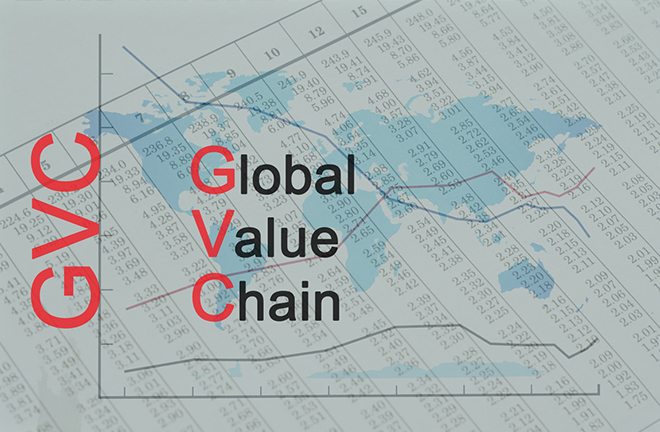New research center to boost world economic studies

Global value chains are dominated by developed countries. Photo: TUCHONG
At the Conference Marking the 70th Anniversary of the Five Principles of Peaceful Coexistence held on June 28, Chinese President Xi Jinping announced that China will establish a Global South research center, provide 1,000 scholarships under the Five Principles of Peaceful Coexistence Scholarship of Excellence and 100,000 training opportunities to Global South countries in the coming five years, and also launch a Global South youth leaders program, in order to better support Global South cooperation.
As the notion of building a human community with a shared future wins increasing support and cooperation within the Belt and Road Initiative framework thrives, the relationship and cooperation between China and other countries of the Global South are getting closer, highlighting the necessity to enhance mutual understanding. The launch of the Global South research center will bring new topics to world economic studies and point to new research directions.
Research gap
In the current international political and economic order, the Global South has seen limited direct industrial engagement. When such relations do exist, they often function as isolated links within global industrial chains that are dominated by developed nations. As a result, it is difficult for a robust industrial cycle to take shape.
This has led Chinese academia to focus on relations between China and developed countries in world economic research, particularly on the spillover effect on China generated by developed nations’ political, economic, and trade policy changes. This has, to some extent, resulted in an oversight of cooperation within the developing bloc, causing a research gap.
Upholding common development
Since reform and opening up, China has actively integrated itself into global value chains, steadily ascending toward higher tiers as it continuously expands its economy. In fact, a paradox arises when developing nations integrate into global value chains led by developed countries. If a developing country fails to lift its status in global industrial chains, it will necessarily be replaced by countries with lower production costs, ultimately becoming mired in the middle-income or even low-income trap. Even if a developing nation successfully achieves a higher status through its own efforts, it often faces deliberate economic suppression from developed countries.
As the world’s second-largest economy, China must explore a new development philosophy that aligns with its intrinsic economic needs, especially given the evident limitations of the existing international political and economic order. This new philosophy departs from the traditional “center-periphery” model promoted by Western developed countries, as well as from a beggar-thy-neighbor approach aimed solely at satisfying China’s own needs. Instead, it advocates for a model of common development that aspires to create a human community with a shared future.
Development is an eternal theme. The Global South not only needs industrialization and modernization, but also aspires to achieve economic self-reliance and independence. China has made notable achievements in charting its own development path and is duty-bound to contribute greater strength to the common development of Global South countries.
Since the BRI was proposed in 2013, China has vigorously implemented the Global Development Initiative and worked together with other nations to strengthen policy coordination, infrastructure connectivity, unimpeded trade, financial integration, and people-to-people bonds, thus engaging countries from the Global South to participate. Through these cooperative actions, all participants have cultivated stronger endogenous dynamics.
Rewarding studies
In the new era, Global South cooperation is becoming a new area to boost world economic studies. The establishment of the Global South research center will undoubtedly deepen cooperative studies between China and the Global South. This scholarly undertaking will by no means be confined to introducing related countries superficially, but will explore mutually beneficial paths for the sake of the entire Global South’s development.
Pertinent research will examine how to expand access to the markets of the Global South through the super-large Chinese market; formulate infrastructure and development plans oriented toward cross-regional economic integration, centering around the objectives of industrialization in the Global South; and intensify exchanges on education, talent cultivation, and culture by enhancing cooperation.
This kind of multilateral collaboration between Global South countries, particularly strengthened studies of the bloc, will help advance industrialization and economic development in the Global South, thereby instilling confidence and vitality into global economic development.
Fan Zhiyong is a research fellow from the National Academy of Development and Strategy at Renmin University of China.
Edited by CHEN MIRONG
